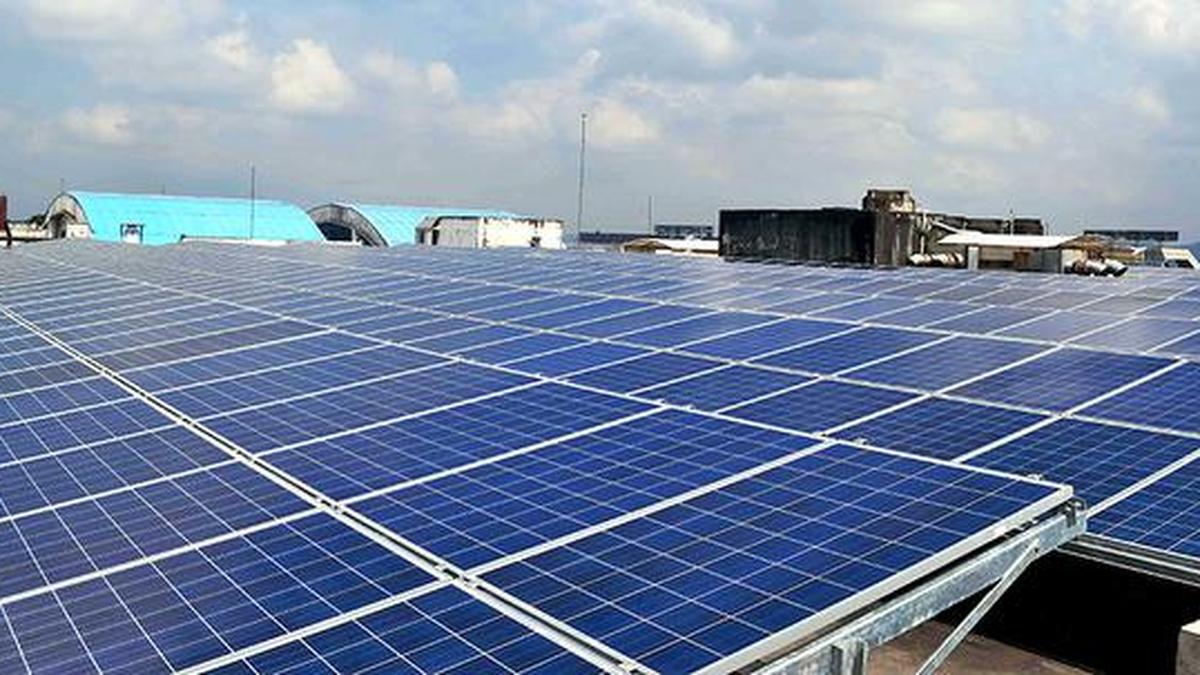The Cochin Chamber of Commerce and Industry has raised serious concerns over Kerala’s draft Renewable Energy Regulation 2025, warning that its current form could derail the state’s solar progress, penalise existing users, and trigger large-scale job losses in the renewable energy sector.
| Photo Credit:
Voicing concern over the draft Renewable Energy Regulation 2025, the Cochin Chamber of Commerce and Industry has said that the proposal, if implemented in its current form, will severely discourage solar adoption, penalise existing users, and trigger widespread job losses across Kerala’s renewable energy sector.
It risks derailing the state’s clean energy progress and ultimately serves the interests of none, S.P. Kamath, the chamber president, said in a letter to the Chairman of Kerala State Electricity Regulatory Commission.
The industry body urged the state government and Regulatory Commission to either withdraw or substantially revise the draft regulation—following comprehensive, transparent consultations with all relevant stakeholders, including consumers, industry professionals, trade associations, and elected representatives.
“Kerala must forge ahead in its clean energy transition, not regress. We need a policy framework that is inclusive, progressive, affordable, and employment-friendly. Your support in this critical matter would be invaluable”, the chamber president said.
The chamber president pointed out that several provisions in the draft would significantly undermine Kerala’s rapidly growing solar ecosystem, hinder the development of EV charging infrastructure, and result in far-reaching socioeconomic repercussions. These may include potential job losses, withdrawal of ongoing and future investments, increased energy costs for consumers, and a major setback to the state’s ambitious renewable energy and sustainability targets, he said.
The proposed reduction in the net metering limit from the current level (up to 1000kW) to merely 3kW will severely restrict the widespread adoption of solar energy. This change will disproportionately impact proactive consumers, including educational institutions, hospitals, apartment complexes, and farming communities, who rely on higher-capacity solar installations for sustainability and cost efficiency.
These new restrictions significantly deviate from national directives and the progressive spirit of distributed renewable energy deployment, potentially hindering Kerala’s contribution to national renewable energy targets (RPOs) and overall energy transition efforts. The draft regulations also threaten the financial viability and expected return on investment for the thousands of existing prosumers who installed systems under previous, more favourable net metering regimes, he said.
Published on July 2, 2025
